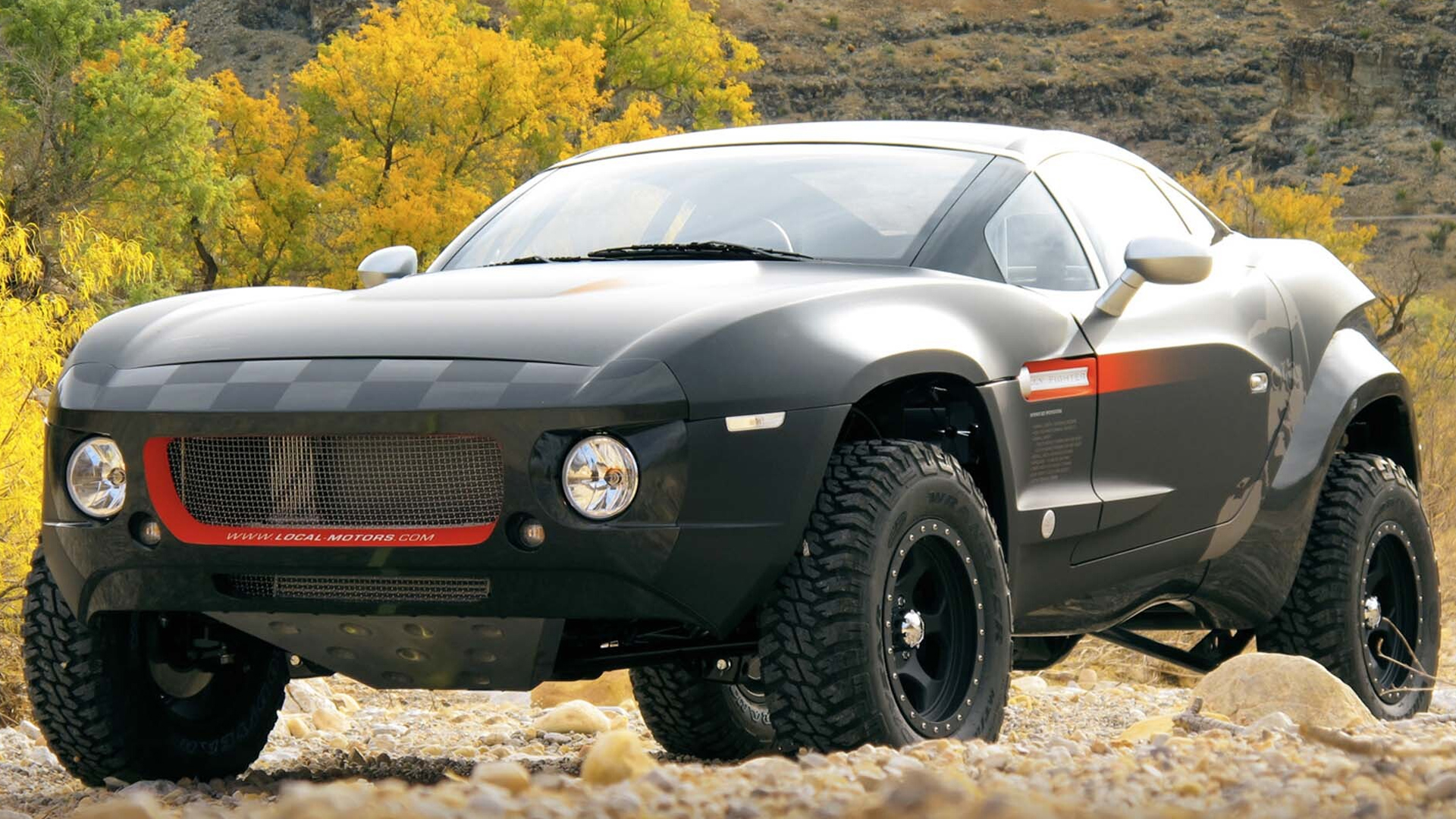

Local Motors, the Arizona-based company behind the community-designed Rally Fighter, is set to close later this week.
The Drive was tipped off about the company’s closure on Tuesday following a string of unofficial announcements from various employees on LinkedIn. Chris Stoner, Local Motors’ former VP of sales and customer success, was one of the individuals who shared the company’s plans to cease operations.
“I am disheartened to announce that Local Motors will cease to exist as of January 14,” wrote Stoner. “I was only there a few months, but loved every minute of it. I made some great friends, both locally and globally, which makes it worthwhile. The autonomous vehicle space is an exciting emerging market with plenty of opportunity. Experiencing first-hand the skill and dedication of the people I worked with, I have no doubt AVs (like Olli) are the future of transportation.”

The news was confirmed by several
employees, who each shared their own words regarding Local Motors’ closure.
While Local Motors has not yet made an official announcement on the matter, an anonymous source familiar with the situation told The Drive that it boils down to a lack of funding. Local Motors did not respond to our request for comment at the time of writing.
Local Motors is the company behind the Rally Fighter, the world’s first “co-created” car that was designed using crowdsourced component creation from an estimated roundabout 200 people. The Rally Fighter was essentially a kit car equipped with a 6.2-liter GM LS engine, and its assembly was completed by its buyers with the help of Local Motors employees at one of the company’s micro-factories. The car was so impactful to DIY and shadetree engineering circles that it was even featured in the Fast and Furious film series as well as several Forza video games.
Following the Rally Fighter’s production ending in 2016, Local Motors pivoted to building an autonomous pod called Olli. The low-speed self-driving pod, which still featured a safety driver, was a 3D-printed creation capable of traveling up to 60 miles on a single charge. Eventually, it was replaced by the Olli 2.0, which was deployed for testing in the West Rouge area of Toronto.
On Dec. 16, the Olli 1.0 shuttle collided with a tree, resulting in its attendant being critically injured.
While Local Motors has not yet commented on the closure, The Drive’s source tells us that it is unrelated to the Ontario crash. Testing of Local Motors’ Olli 2.0 shuttle in was paused due to the accident and “current public health guidance regarding COVID-19,” per Toronto’s website regarding the Olli 2.0 trial.

Past the Olli 1.0 and 2.0 public evaluations, it’s not yet clear what other projects will be affected by Local Motors’ closure, nor which may have already ended prematurely in anticipation of the company cessation.
And even though Local Motors has moved past its wild Rally Fighter and 3D-printed Strati, it’s still a disappointing loss for the many fans and aspiring engineers who contributed to the company’s popularity over the past decade and a half.
Got a tip or question for the author? Contact them directly: rob@thedrive.com